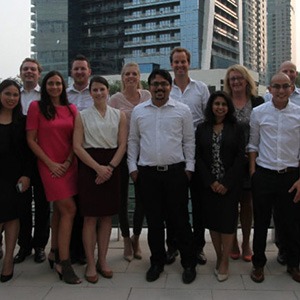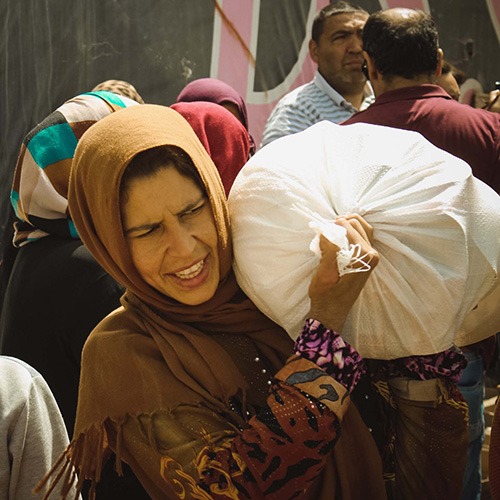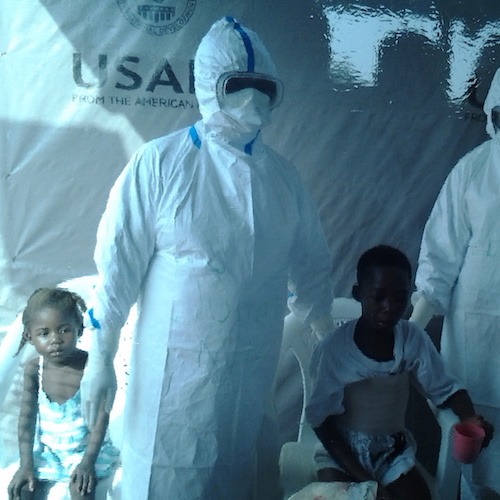The UN’s Vision For
A Universal Digital ID
 From a position of privilege, it can be quite easy to imagine that one thing we have safe is our identity. Yes, we worry about it. We panic if we think someone’s hacked our email account and we’re mindful of people stealing our bank details. But having an identity to steal at all is a luxury not everyone can afford. Around 1.1bn people don’t have any formal identity at all.
From a position of privilege, it can be quite easy to imagine that one thing we have safe is our identity. Yes, we worry about it. We panic if we think someone’s hacked our email account and we’re mindful of people stealing our bank details. But having an identity to steal at all is a luxury not everyone can afford. Around 1.1bn people don’t have any formal identity at all.
The UN sees identity as critical to its work. After all, if you don’t know who and where someone is, how can you help them? To this end, it has pledged to provide everyone on the planet with a legal identity, including birth registration, by 2030.
Why is a universal identity so important?
According to The World Bank, around two billion adults globally do not have a bank account. In some places, citizens have no way of identifying themselves at all. This, of course makes protecting one’s rights a lot harder. A World Bank report from 2012 said that women also make up a disproportionately large share of the unbanked. For example, while 37% of women in developing countries have an account, 46% of men do.
Refugees fleeing a war situation across an international border without the correct documents find themselves unable to do this through the formal channels. Children without formal documents are more vulnerable to trafficking and if they do end up in safety, they’re often unable to access any services and are more likely to end up working on the black market if they can’t enter the system legitimately.

Healthcare and education become difficult or impossible to access, and political and legal rights and social benefits are hard to come by. Some Syrian refugees, for example, were never recognised as Syrian nationals and so have no papers at all. This makes their claim to remain as refugees in their new homes even more difficult.
In the developing world, many women and girls face additional barriers due to restricted travel, and a lack of familial support and education. In Burkina Faso, for example, to obtain a birth certificate, citizens must have two witnesses (such as their mother or a midwife) to attest to their birth in the country. However, many women leave their birth villages when they marry and coming back to get witnesses can be challenging, if not impossible.
Gillian Tett, writing in the Financial Times, talks about an innovative scheme in Nigeria, spearheaded by finance minister Ngozi Okonjo-Iweala. She developed a digital record-keeping identity system using customer biometrics to tackle the issue of crooks creating ‘ghost pensioners’, costing $1.1bn in fraudulent payroll costs. As the digitisation process gathered pace, it not only knocked out sham claimants but also gave identities to thousands of people who had previously been invisible.
Who’s doing what in universal identity?
Refugee bodies, including the United Nations Development Programme, have started trying to create digital identities for people in camps.

Some developing countries are already making ID programmes work, with some success. In India, the Aadhaar program issues all Indian residents with a 12-digit unique-identity number based on their biometric and demographic data. This is the world’s largest biometric ID system, with more than 1.171 billion enrolled members. In Thailand, the national ID number helps deliver universal health coverage, in Peru universal registration allows assistance in the event of a natural disaster and in Pakistan biometric technology is empowering more women to receive cash transfers directly.
The tech that makes digital ID work
There are various public and private companies looking at alternatives. Startup Taqanu, which uses smartphones to track digital data, including social networking, to demonstrate their identity via something called a “reputation network”. The app lets people upload photos of documents (and this can include papers from a refugee camp). Elsewhere, the Banqu app uses Blockchain technology to help people without bank accounts build digital identities..
ID2020 founder and fintech pioneer John Edge says, “If you create a new derivative contract, it’s like a human being born. It’s a thing that doesn’t exist that now does exist that needs an identity in a system. The trading system we built trades trillions of derivatives, stocks, bonds, and options. And there are systems that manage lots and lots of individual identities and transactions.”
Not only can these new technologies help refugees and people seeking urgent assistance, they will help ensure people can claim essential services and rights in their own countries and work towards a fairer system for everyone.



